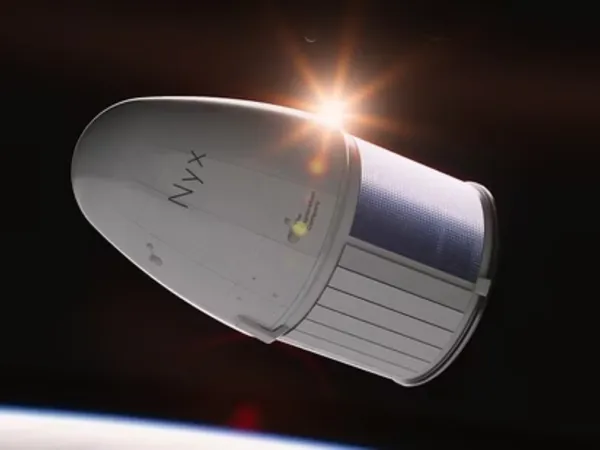
Unlocking Ancient Wisdom: How China's Astronomical Archives Transformed Knowledge
2025-06-03
Author: Siti
A Glimpse into China’s Astronomical Legacy
Spanning over two millennia, the astronomical records of imperial China are among the most extensive and significant scientific archives in history, covering a period from 221 BC to 1911 AD. These records provide a treasure trove of information about astronomical phenomena, from comets to the Earth’s rotation.
The Power of Historical Archives
A recent article in Isis delves into these remarkable archives, illustrating their crucial role in evolving astronomical practices in premodern China. The author, Qiao Yang, emphasizes how these archives acted as a platform for historical consciousness and collaborative endeavors across generations.
Dynasties and Data: The Heart of Astronomy
Yang notes that the most substantial source of astronomical knowledge came from imperial dynastic histories. Across this era, there are twenty-four official histories, with eighteen featuring dedicated sections on astronomy, showcasing the meticulous documentation of each legitimate dynasty.
The Visionary Astronomer: Qi Lüqian
In the article titled "Astronomy as a Science in the Archive of Imperial China (221 BC-AD 1911)," Qi Lüqian emerges as a key figure during the Mongol Yuan dynasty of the 13th and 14th centuries. As a member of the Astrological Commission, he played a pivotal role in the organization and refinement of astronomical records, transforming vast volumes of raw data into concise compilations.
Preserving the Past: Challenges and Triumphs
However, the fragility of these paper records posed a significant threat. Factors like mold, moths, and fire loomed large, while scribal errors threatened to distort or erase vital information. Recognizing these challenges, Qi Lüqian took bold steps to ensure the accuracy and preservation of astronomical details in his work.
Revolutionary Biographies
When Qi Lüqian penned a biography of his mentor, Guo Shoujing, he broke away from conventional norms. He included exhaustive technical details about astronomical instruments and detailed his groundbreaking astro-geodetic survey from the early 1280s. This biography not only found a place in the official "History of the Yuan Dynasty" but also became a cornerstone for future studies on Yuan-era astronomy.
A Legacy of Collaboration and Insight
Yang highlights that this forward-thinking mindset and the reverence for historical insights were hallmarks of imperial Chinese astronomy. When faced with mysteries like the elusive solar eclipse of 1299, astronomers such as Qi Lüqian sought guidance from past dynastic records to uncover patterns. They skillfully blended historical data with observational findings to determine variations, like the length of tropical years.
Historical Record Over First-Hand Observation
Interestingly, when inconsistencies arose between historical and observational data, later astronomers often prioritized historical records over direct observations, further emphasizing the importance of these dynastic histories.
The Collaborative Nature of Knowledge
Ultimately, Yang concludes that these dynastic histories were crucial in defining the astronomical knowledge of imperial China. The creation and utilization of these archives mirror the political, cultural, and material factors of the time, highlighting how astronomy wasn’t just a realm of solitary geniuses but rather a collaborative effort enriched by the preservation of rich historical narratives.




 Brasil (PT)
Brasil (PT)
 Canada (EN)
Canada (EN)
 Chile (ES)
Chile (ES)
 Česko (CS)
Česko (CS)
 대한민국 (KO)
대한민국 (KO)
 España (ES)
España (ES)
 France (FR)
France (FR)
 Hong Kong (EN)
Hong Kong (EN)
 Italia (IT)
Italia (IT)
 日本 (JA)
日本 (JA)
 Magyarország (HU)
Magyarország (HU)
 Norge (NO)
Norge (NO)
 Polska (PL)
Polska (PL)
 Schweiz (DE)
Schweiz (DE)
 Singapore (EN)
Singapore (EN)
 Sverige (SV)
Sverige (SV)
 Suomi (FI)
Suomi (FI)
 Türkiye (TR)
Türkiye (TR)
 الإمارات العربية المتحدة (AR)
الإمارات العربية المتحدة (AR)